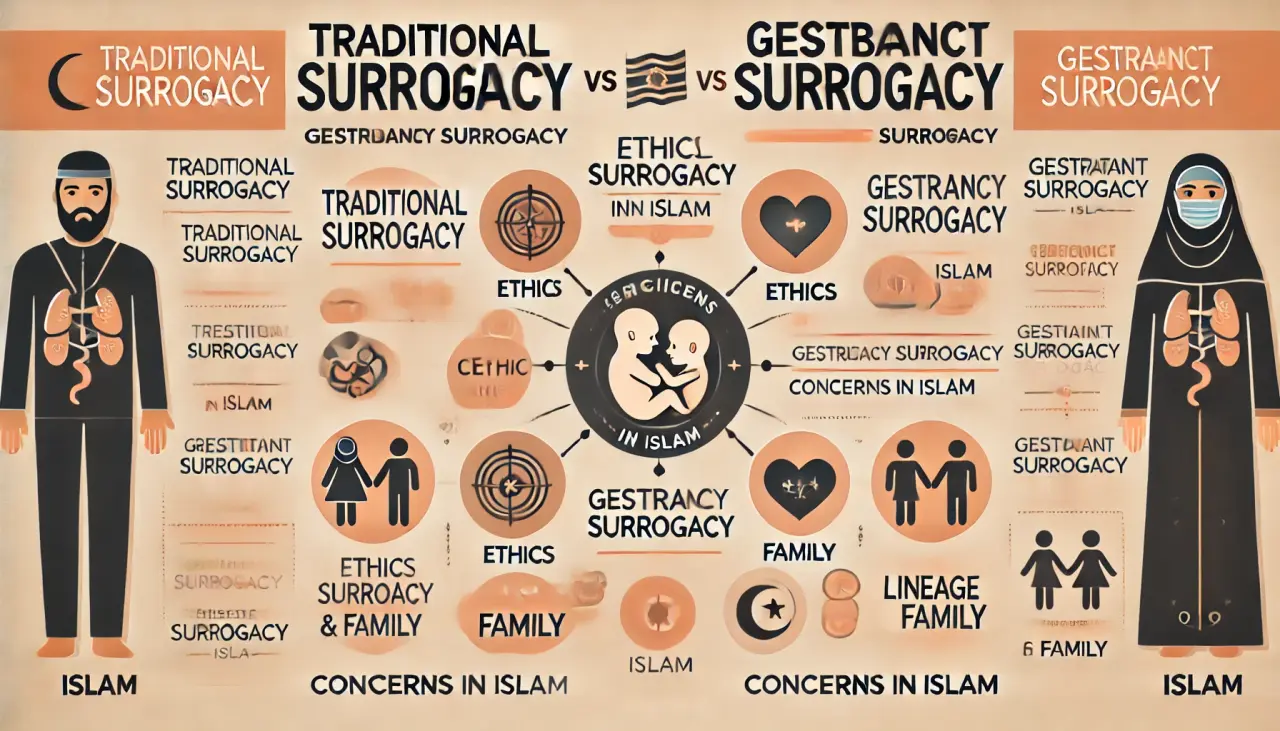
Does Islam Allow Surrogacy? A Comprehensive Exploration
Introduction: Surrogacy and Islam
In recent years, surrogacy has become a widely debated topic, especially when considering its ethical, moral, and legal implications within various religious contexts. One of the key questions raised by those considering surrogacy in Muslim-majority regions is: Does Islam allow surrogacy? The answer, however, is not straightforward, as Islamic scholars have differing views on the practice, influenced by interpretations of Islamic teachings and ethics.

Islamic Views on Surrogacy
Islamic law, or Sharia, is rooted in the Quran, Hadith (sayings of Prophet Muhammad), and centuries of scholarly interpretations. When it comes to the issue of surrogacy, the primary concern is the preservation of the family structure, the sanctity of marriage, and the legitimacy of lineage. As such, Islamic scholars have analyzed surrogacy through these lenses.
- General Prohibition of Third-Party Reproduction: Many Islamic scholars assert that surrogacy is not permissible in Islam, primarily due to the involvement of a third-party. In traditional Islamic jurisprudence, the sanctity of lineage is highly regarded. Introducing a third-party into the reproductive process could confuse the identity of the child and undermine the Islamic concept of biological parenthood.
- Concerns Regarding Unmarried Fertility Procedures: Islamic scholars also express concerns about procedures such as artificial insemination and embryo transfer, particularly when done outside of marriage. In these cases, the practice of surrogacy, which may involve unmarried individuals, could contradict Islamic teachings about the importance of the marital bond for reproduction.

The Difference Between Traditional and Modern Surrogacy
The practice of surrogacy itself is not inherently opposed in Islam; rather, it is the form of surrogacy that is being questioned. Islamic scholars distinguish between traditional surrogacy, where the surrogate mother uses her own egg and carries the child, and gestational surrogacy, where the surrogate mother carries an embryo created with the intended mother’s egg or a donor egg.
- Traditional Surrogacy: In the case of traditional surrogacy, where the surrogate is genetically related to the child, there are significant ethical concerns regarding the confusion of parental lineage and the legitimacy of inheritance. This form of surrogacy is generally regarded as impermissible in Islam.
- Gestational Surrogacy: In contrast, gestational surrogacy, which involves a third-party carrier who has no genetic relation to the child, may be seen as more acceptable in some interpretations, though there are still questions surrounding the permissibility of the use of IVF (in vitro fertilization) outside the marriage.
Islamic Scholars’ Perspectives on Surrogacy
The views of Islamic scholars on surrogacy are not monolithic. While many scholars consider surrogacy to be haram (forbidden), others are more open to it under specific circumstances. Here’s a breakdown of some common perspectives:
- Conservative View: The majority of conservative Islamic scholars believe that surrogacy violates Islamic law because it disrupts the natural process of procreation within the bounds of marriage. They argue that surrogacy, especially when involving third parties, leads to complications with inheritance rights, lineage, and family structure.
- Moderate View: Some more moderate scholars, particularly in the context of modern medical advancements, argue that surrogacy may be allowed in cases where there is clear and legitimate need, such as for a married couple who cannot conceive naturally. However, they emphasize that the surrogacy process should be carefully managed to avoid complications related to lineage, marriage, and parental rights.

Conditions Under Which Surrogacy Might Be Permitted in Islam
Though surrogacy is generally viewed as controversial in Islam, there are some conditions under which it might be considered permissible by certain scholars. These conditions include:
- Married Couples Only: Surrogacy should be permitted only within the bounds of a legal marriage. The surrogate mother should not be a third party outside the marriage, and all medical procedures should be conducted within the ethical framework of Islamic family law.
- No Commercial Surrogacy: The practice should not involve financial transactions for the surrogacy itself. Islamic teachings prohibit any form of exploitation or commercial gain in reproductive matters, meaning surrogacy for profit would be deemed impermissible.
- Preservation of Lineage: The child’s identity should remain clear, with the intended parents being recognized as the child’s rightful parents, and the surrogate mother not being involved in the child’s identity or inheritance rights.
Conclusion: Navigating Surrogacy in the Context of Islam
In conclusion, does Islam allow surrogacy is a complex question that depends largely on the form of surrogacy and the context in which it is practiced. While the majority of scholars deem surrogacy impermissible due to its potential for disrupting family structure and lineage, there are some who believe that under specific conditions, surrogacy may be acceptable, especially for married couples who are facing infertility. As such, it is essential for those considering surrogacy to consult with knowledgeable religious scholars and seek guidance on the most appropriate course of action within the framework of Islamic law.